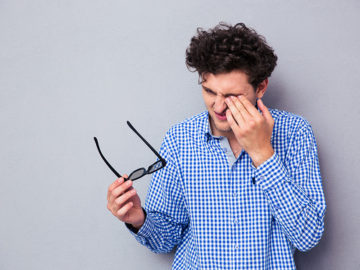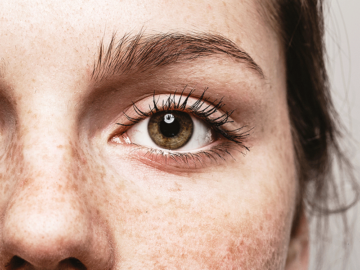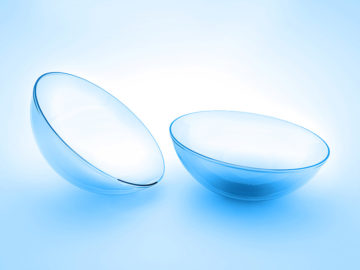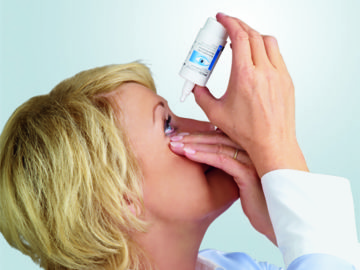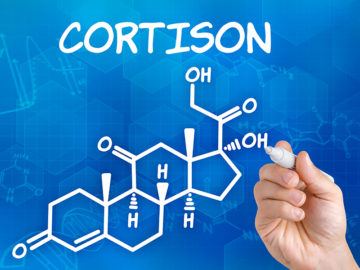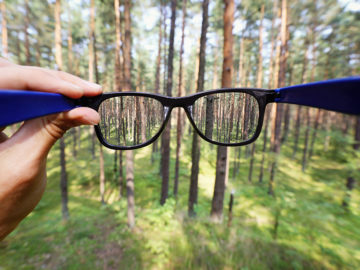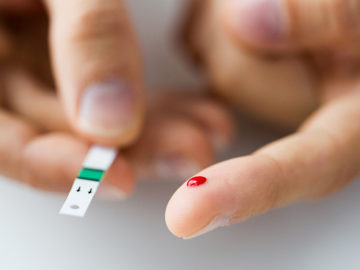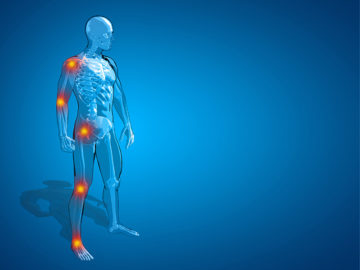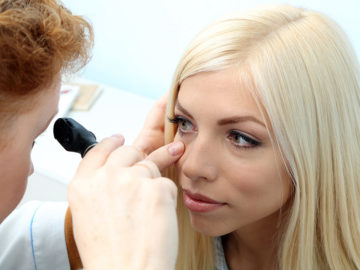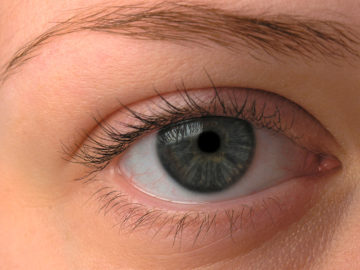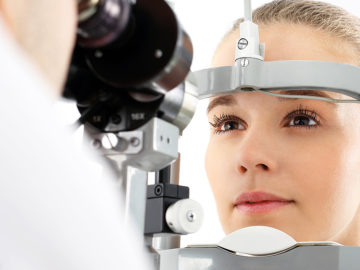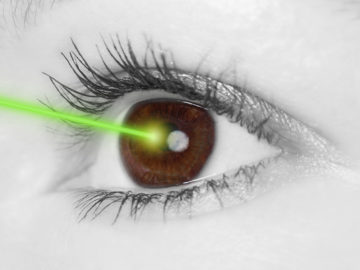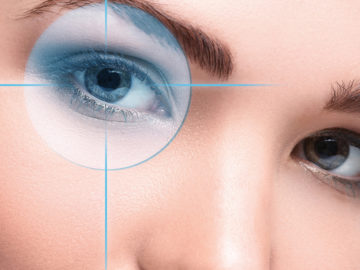Dry eyes due to medicines

Dry eyes can be caused as a side effect of various medicines.
Dry eyes – the medical name is sicca syndrome – often show symptoms which are unpleasant: the eyes are reddened, itch or burn. Often, there is a sensation of having a foreign body or grain of sand in the eye. With every blink, the eyelid rubs painfully over the dry surface of the eye.
The causes of dry eyes are varied and among other things, medicines can cause dry eyes as a side effect. Which medicines are they and how do they act?
Contraceptive pill
Women suffer more frequently from dry eyes than men do. That is mainly due to hormones, because the female sex hormone oestrogen can affect tear productsion and therefore lead to the eyes drying out. Even if oestrogens are taken as medication, for example for treating menopausal symptoms, dry eyes are a possible unwanted effect. The development of dry eyes can also be encouraged by taking the contraceptive pill, because the pill also supplies the body with female hormones.
Beta blockers
Beta blockers have a wide range of application. They are primarily used for disorders of the cardiovascular system, such has high blood pressure or cardiac arrhythmia, but they are also used for treating migraines, an overactive thyroid or glaucoma (green star). As a side effect, beta blockers can suppress tear productsion so that sufficient lubrication of the eye can no longer be assured. Frequently observed symptoms are dry eyes, eye pain and visual disorders.
Anticholinergics
Anticholinergics are used to treat colics or chronic bronchitis. They disrupt the spontaneous constriction of the smooth muscles which surround the internal organs and thus have an antispasmodic effect. Anticholinergics also inhibit the function of the glands in the body by preventing the forwarding of signals which the glands need to dispense secretion. This has an effect on the lacrimal glands and also, for example, the salivary glands. A dry mouth and dry eyes are the consequences.
Antihistamines
Allergic illnesses, such as hay fever, are often treated with antihistamines. They restrict the release of the endogenous messenger substance histamine, which conveys allergic reactions. If histamine is blocked, the allergic symptoms improve significantly. But antihistamines can also restrict the lacrimal glands such that there is not enough lacrimal fluid available for lubricating the eye.
Tricyclic and tetracyclic antidepressants
These psychotropic drugs are prescribed for depressive illnesses and states of anxiety. Among other things, depressions occur when there is a lack of messenger substances (neurotransmitters) present in the brain. Tricyclic and tetracyclic antidepressants inhibit the reuptake of neurotransmitters into the nerve cells of the brain. So the lack of neurotransmitters is compensated in the patient’s brain. As a side effect, the antidepressants reduce the discharge of tears from the lacrimal glands, which can lead to symptoms in the eye.
Ergotamine
The medicine ergotamine is used for acute migraine attacks, with or without aura (visual perception disorder), and cluster headache. As the medicine can be life-threatening if overdosed and causes many side effects, it is rarely used. Ergotamine constricts the blood vessels which can also lead to dry eyes.
Neuroleptics
The neuroleptics group of drugs belongs to the psychotropics and is used against delusion, states of confusion, states of agitation and hallucinations. Many neuroleptics prevent the transfer of the messenger substance dopamine in the brain, which is also described as a happy hormone and is responsible for the generation of motivation and attentiveness.
The side effects of psychotropic drugs are varied: from hormonal disorders and movement disorders through to depression and functional disorders of certain organs are possible. The eyes can also dry out when using neuroleptics.
Reserpine
Reserpine lowers blood pressure but is now only seldom used for treating high blood pressure because of its numerous, sometimes severe, side effects. The mode of action of reserpine in the body is complex: it affects both the central as well as the peripheral (outer) nervous system. Among other things, reserpine promotes the activity of the parasympathetic nervous system, the so-called calm nerve, which is responsible for the body’s recovery. It can produce undesirable effects like contraction of the pupil, drooping eyelids or dry eyes.
Diuretics
Thiazide iuretics (thiazides for short) serve to dehydrate and are mainly taken against high blood pressure and retention of water in the body. Thiazides support the generation and excretion of urine. Thus,they lower blood volume and, if taken over a longer period, also lower blood pressure. Because thiazides interfere with the body’s metabolism, they can, if taken for a long time, cause dry eyes among other things.
Trihexyphenidyl
Trihexyphenidyl is used in the treatment of Parkinson’s disease. The drug has a relaxing effect on the involuntary muscles of the inner organs (smooth muscle) because it inhibits the release of the messenger substance acetylcholine. This is present in high quantities in Parkinson’s sufferers. Among other things, trihexyphenidyl can restrict the flow of secretion from the salivary and tear glands, which produces a dry mouth and dry eyes.
Note: dry eyes particularly occur as a consequence of using the above-mentioned medicines over a long period of time. Dry eyes are a burden and can significantly affect the quality of life. Therefore, you should visit a doctor if you have problems with your eyes. You can alleviate the symptoms by using lubricating eye drops.



